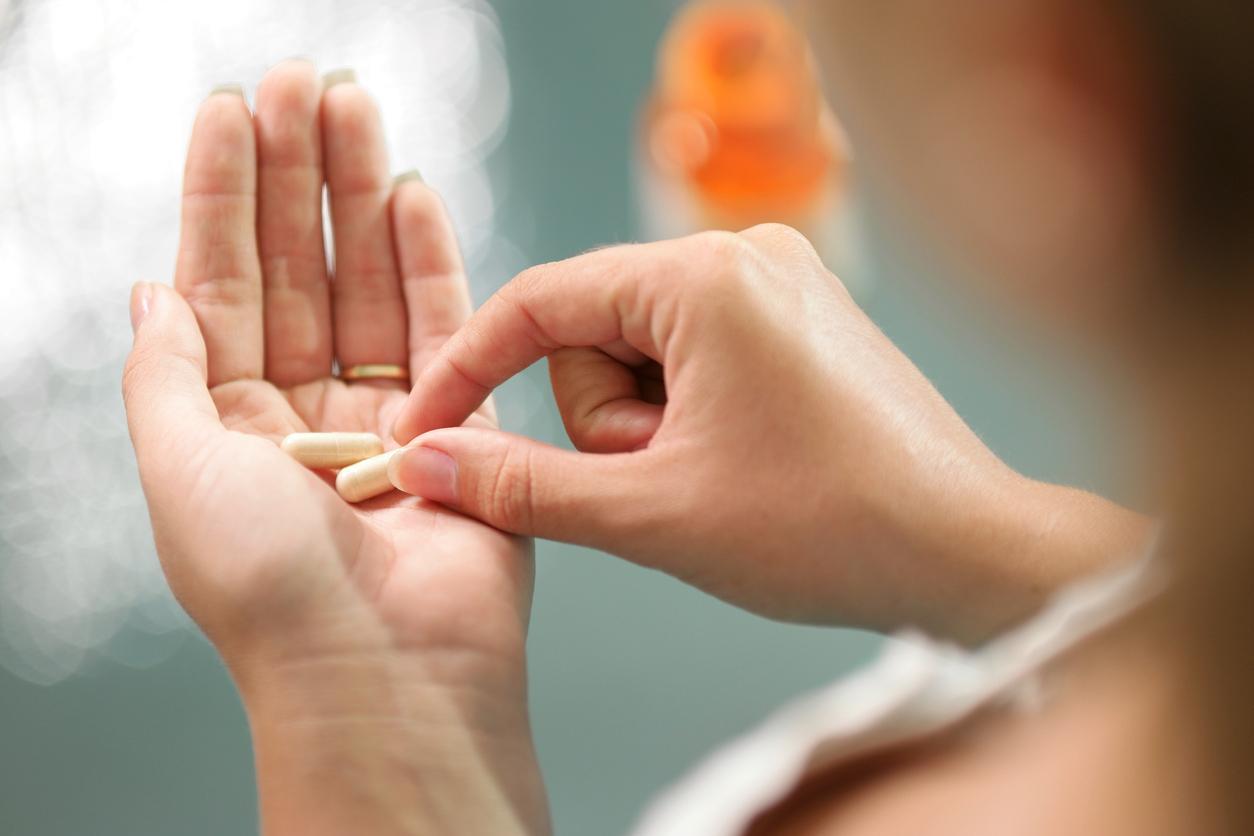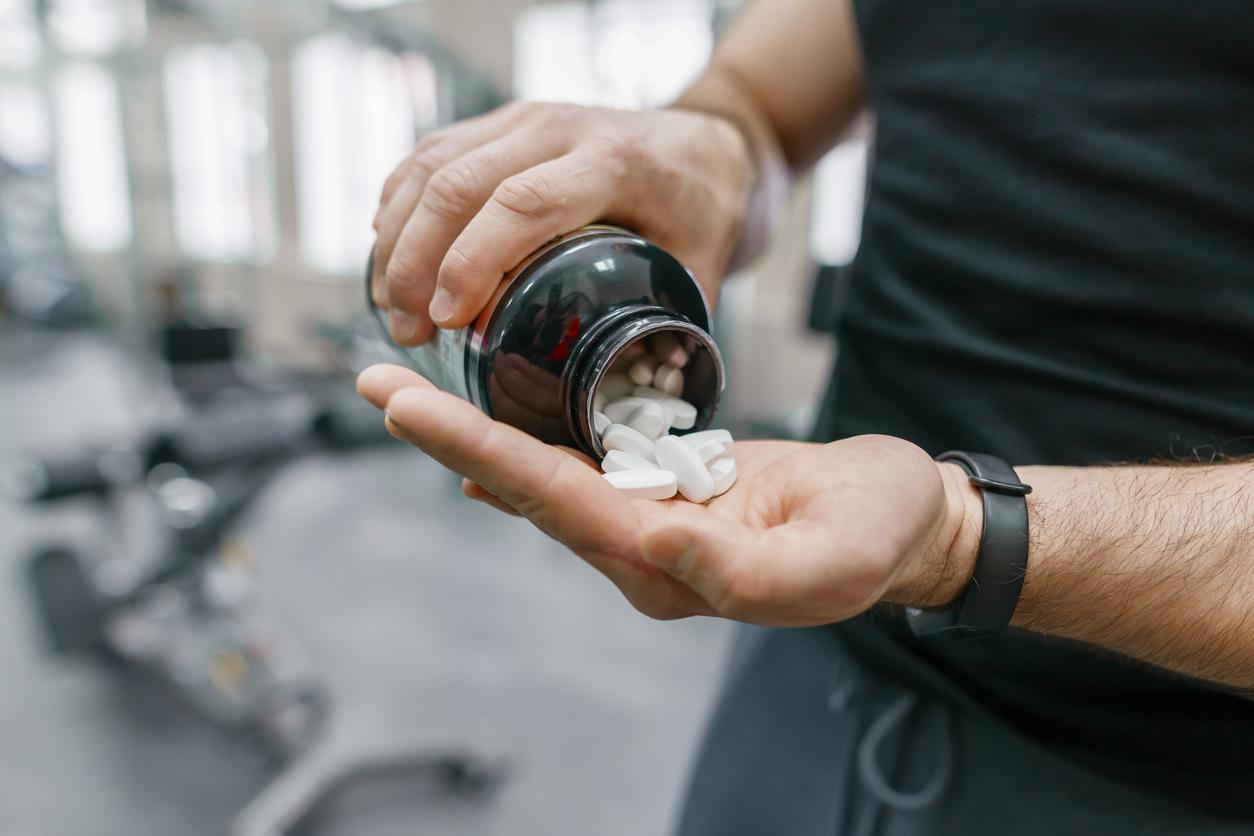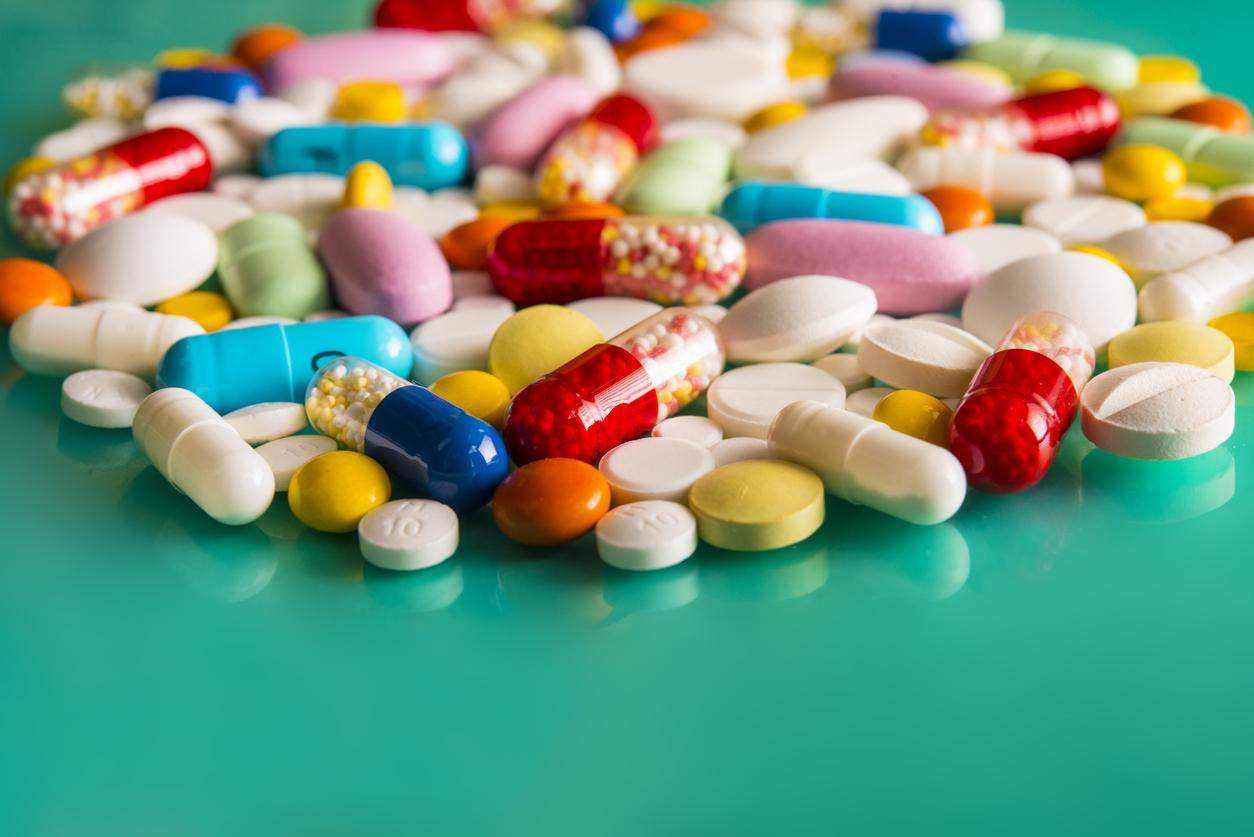Specialists warn of the adverse effects of an overdose linked to food supplements and vitamins, the consumption of which has increased with the Covid-19 health crisis.

- The global complementary and alternative medicine market was valued at $117,210.3 million in 2022, according to a report by Grand View Research.
- Vitamins and minerals are known as micronutrients and are essential elements necessary for the proper functioning of our body.
- Our bodies can only produce them in small amounts, if at all, so we have to get them from our diet.
Vitamin C, D and zinc or iron supplements… We generally think that dietary supplements are harmless and that they guarantee better health.
But they can be dangerous if dosed incorrectly, according to Neelaveni Padayachee and Varsha Bangalee, two teachers of pharmaceutical practice in South Africa. In The Conversationthey indicate the symptoms of an overdose.
In high doses, vitamins are not without danger
Vitamin A/Retinol – beneficial for the maintenance of good eye health, induces chronic toxicity (hypervitaminosis) when doses exceed 10,000 IU per day. “Symptoms include liver damage, loss of vision and increased intracranial pressure. It can cause birth defects in pregnant women”, write the experts.
Vitamin B3 is interesting for the health of the nervous and digestive systems but presents a real risk : it can cause peripheral vasodilation (widening or dilation of blood vessels in the extremities, such as the legs and arms), leading to flushing of the skin, burning sensation, pruritus (itching of the skin) and low blood pressure (lower blood pressure).
Vitamin B6 is essential for brain development and the proper functioning of the immune system – especially for people who do not eat red meat. But at doses above 200 mg/day, it can damage peripheral nerves, such as those in the hands and feet, causing numbness or tingling.
Covid-19: no curative effect of zinc, vitamin C and vitamin D
Vitamin C is an antioxidant and helps in the repair of body tissues. This vitamin was particularly sought after in prevention and as a potential remedy for the Covid-19 virus, but the evidence for its effectiveness is inconclusive. Taken in high doses, it can cause kidney stones and interactions with certain drugs, specialists point out.
Similarly, zinc, once erroneously considered effective against Covid-19, can affect taste and smelland doses greater than 80 mg per day have been shown to have side effects on the prostate.
Vitamin D is essential for the development of bones and teeth and was also recommended in times of Covid. However, in high doses, it can cause hypercalcemia (the level of calcium in the blood is higher than normal), which results in excessive thirst and urination, seizures, coma and death in the worst cases. , say the authors.
There are many red flags of a mineral overdose
In their article, they also mention the adverse effects of high doses of calciumwhich can cause hypercalciuria (increased calcium in the urine), kidney stones and secondary hypoparathyroidism (underactive parathyroid gland).
Magnesium can cause diarrhea, nausea and abdominal crampsand may interact with tetracyclines (antibiotics).
Finally, selenium may cause loss or weakening of hair and nails, skin and nervous system damage, skin rashes, fatigue and mood irritability. High dose iron is also not safe as it can cause constipation, black stools, black staining of teeth and abdominal pain.
















